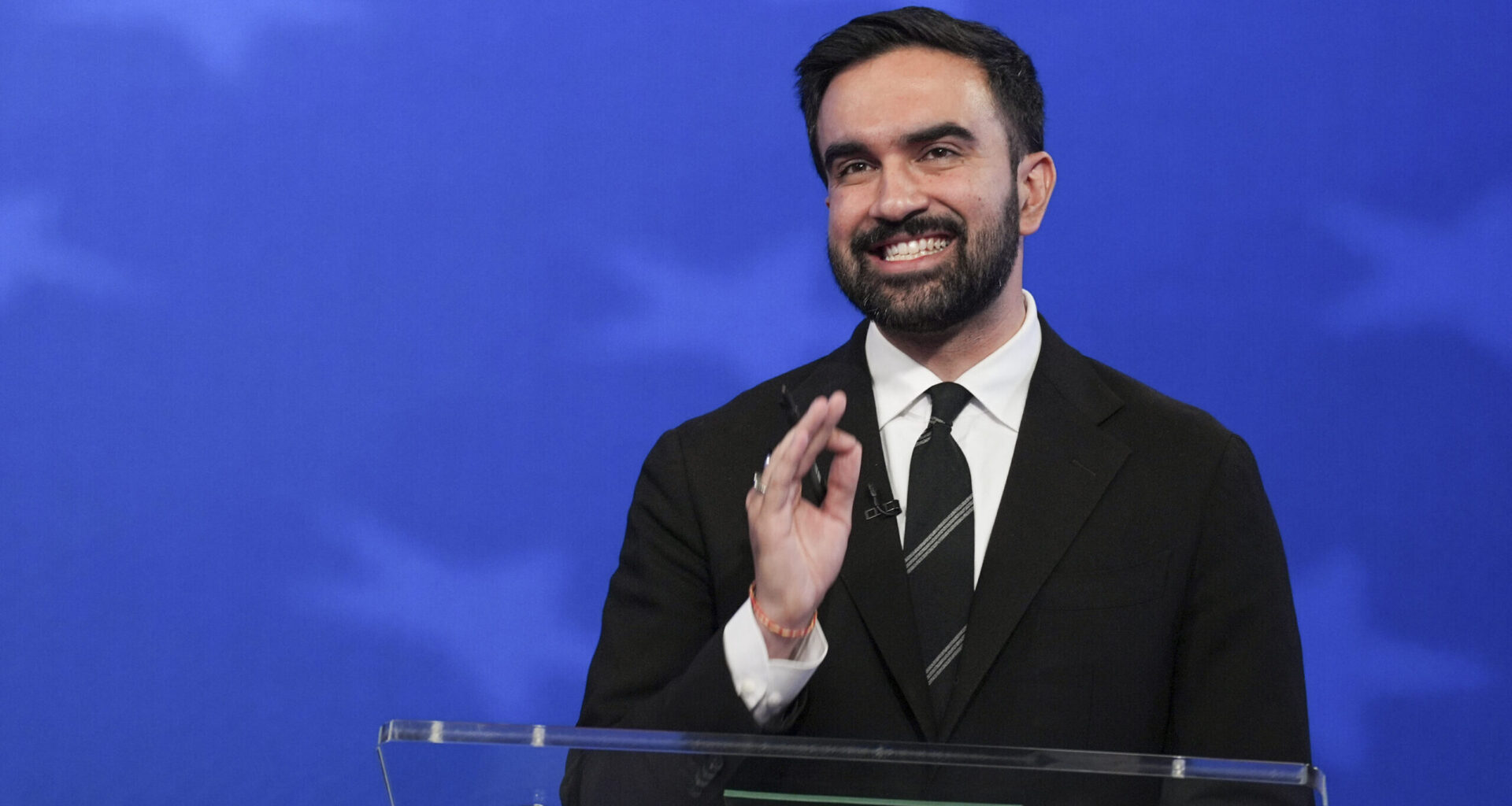In previous mayoral elections in New York City, a candidate’s meeting with a controversial imam who was listed as an unindicted co-conspirator in the 1993 World Trade Center bombing — and who has stridently opposed homosexuality and condemned America as “filthy” and “sick,” among other extreme remarks — might be expected to meaningfully dent support for his campaign.
But even as Zohran Mamdani, the Democratic nominee, has drawn criticism over his recent meeting with Siraj Wahhaj, a Brooklyn imam who leads Masjid at-Taqwa in Bedford-Stuyvesant, political experts say that such backlash is unlikely to influence the outcome of the Nov. 4 election.
That Mamdani, a 34-year-old democratic socialist and Queens state assemblyman, appears poised to withstand scrutiny over his relationship with Wahhaj, which he has defended, underscores how dramatically the political environment has changed in New York City — where the emotional resonance of the 9/11 terror attacks have long played a central role in campaigns and elections.
“Dead cops and firefighters don’t seem to matter much these days,” Hank Sheinkopf, a Democratic consultant who is leading an anti-Mamdani super PAC, told Jewish Insider on Monday. “I think it’s a generational question,” he added, noting that “the people who are voting for” Mamdani “weren’t even born on Sept. 11.”
While he said that Mamdani’s meeting “isn’t helpful” and could ultimately push some voters concerned about public safety to instead back one of his rivals — including the Republican nominee, Curtis Sliwa, or former New York Gov. Andrew Cuomo, running on an independent line — “the question is whether they can generate a vote,” according to Sheinkopf.
“That’s not clear yet,” he explained, saying the controversy could be “buried under” Mamdani’s continued focus on affordability, which helped drive his upset over Cuomo in the Democratic primary in June.
Both Cuomo and Sliwa have attacked Mamdani for the meeting, with the former governor zeroing in on Wahhaj’s history of homophobic comments — including remarks in which the imam called homosexuality “a disease.”
Mamdani, who would be the first Muslim mayor of New York City if elected, has dismissed criticism of his Friday meeting with Wahhaj — whom he praised as “one of the nation’s foremost Muslim leaders and a pillar of the Bed-Stuy community for nearly half a century.”
Mamdani claimed over the weekend that Mayor Eric Adams as well as former New York City Mayors Bill de Blasio and Michael Bloomberg had met with the imam or campaigned with him. “The only time it became an issue of national attention was when I met with him, and that’s because of the fact of my faith and because I’m on the precipice of winning this election,” he argued.
Bloomberg, who faced backlash for inviting Wahhaj to a meeting with Muslim leaders in 2009, later said he would not have been likely to include the imam if he was aware of his background, even as the former mayor vowed “to reach out to everybody” during his time in office.
While de Blasio delivered remarks at Masjid at-Taqwa in 2021, it was unclear if he met with Wahhaj while serving as mayor. De Blasio, who has endorsed Mamdani, did not respond to a request for comment from JI on Monday.
For his part, Adams, who is no longer seeking reelection, appeared alongside Wahhaj at an interfaith breakfast in 2015, when he was Brooklyn borough president, though he does not appear to have previously campaigned with the imam, as Mamdani suggested.
“If the assemblymember wants to liken himself to Mayor Adams, perhaps he should also join the mayor in condemning Hamas, denouncing the phrase ‘globalize the intifada,’ and speaking out against the surge of vile antisemitic hate we’ve witnessed across our city and country since Oct. 7,” Kayla Mamelak Altus, a spokesperson for Adams, said in a statement to JI on Monday. “Something tells me he won’t.”
Wahhaj, who could not be reached for comment, was included by federal prosecutors on a list of unindicted co-conspirator in the 1993 World Trade Center bombing. He was never charged and has denied ties to the attack, which killed six people.
Delivering a lecture in Toronto in 1993, Wahhaj speculated that the Mossad, the Israeli national intelligence agency, could have been behind the bombing, according to an online transcript of his remarks. “Can I say the Mossad did it? No. But I’ll say one thing. It has the fingerprints of agencies like the Mossad,” Wahhaj allegedly said.
Despite such comments, the fallout over Mamdani’s meeting with Wahhaj has been relatively limited — a dynamic that one Democratic consultant in New York City attributed in part to “a willingness to move away from traditional allies and embrace radical actors” on both sides of the aisle.
“We are at the point of insanity that a candidate for mayor is meeting with someone with a well-documented history of radicalism and bigotry, including espousing a belief that white people are the devil and associating with violent extremists who’ve committed acts of terrorism, including several of his own children who ran a terrorist training camp,” the consultant, who asked to remain anonymous to speak candidly, told JI.
But ultimately, he added, “the media ecosystem is so fractured that it is very hard this late in the game to introduce new information to truly persuadable voters in a way that trumps their concerns about other issues.”

